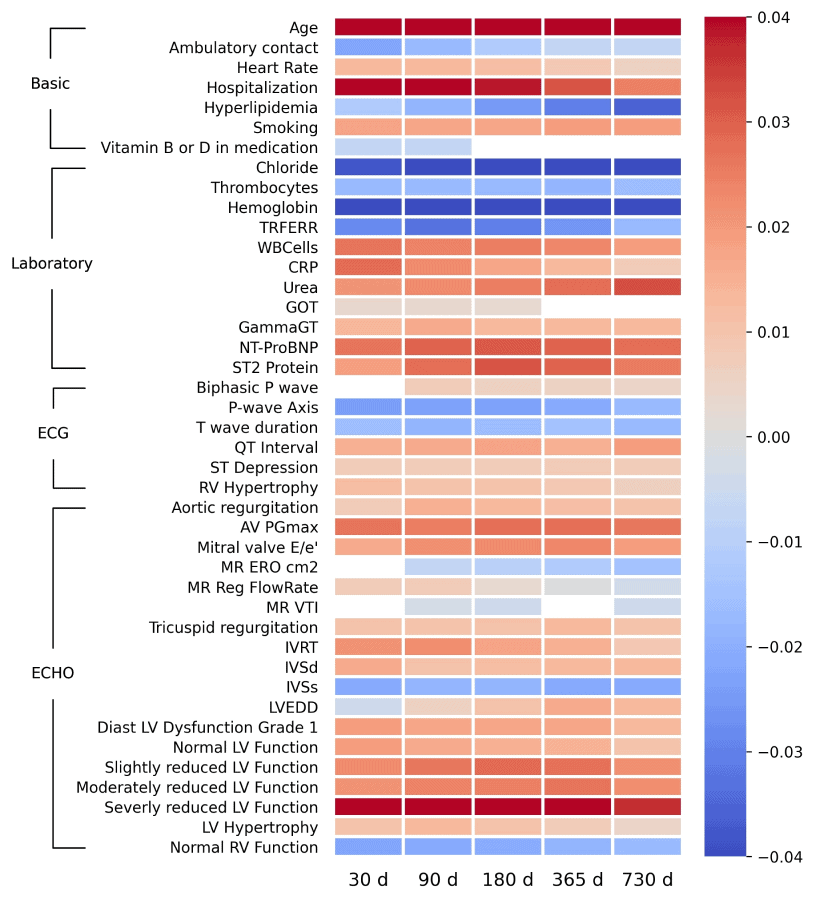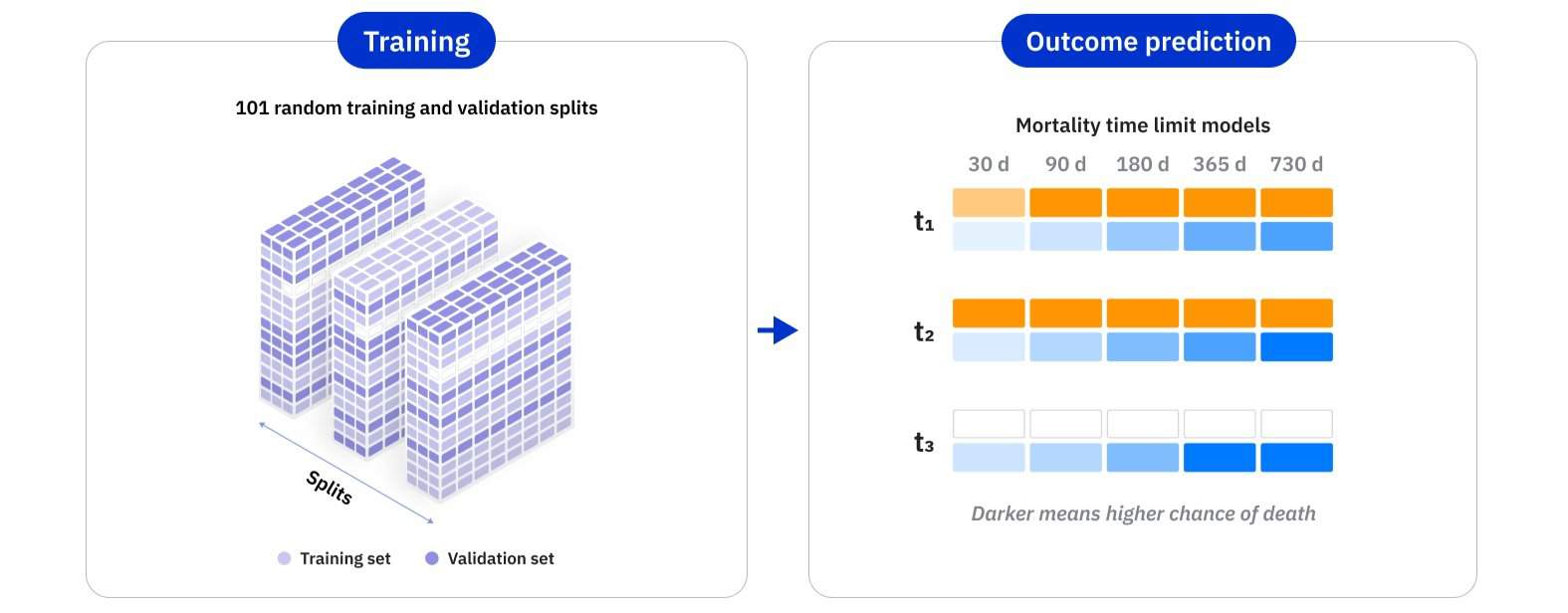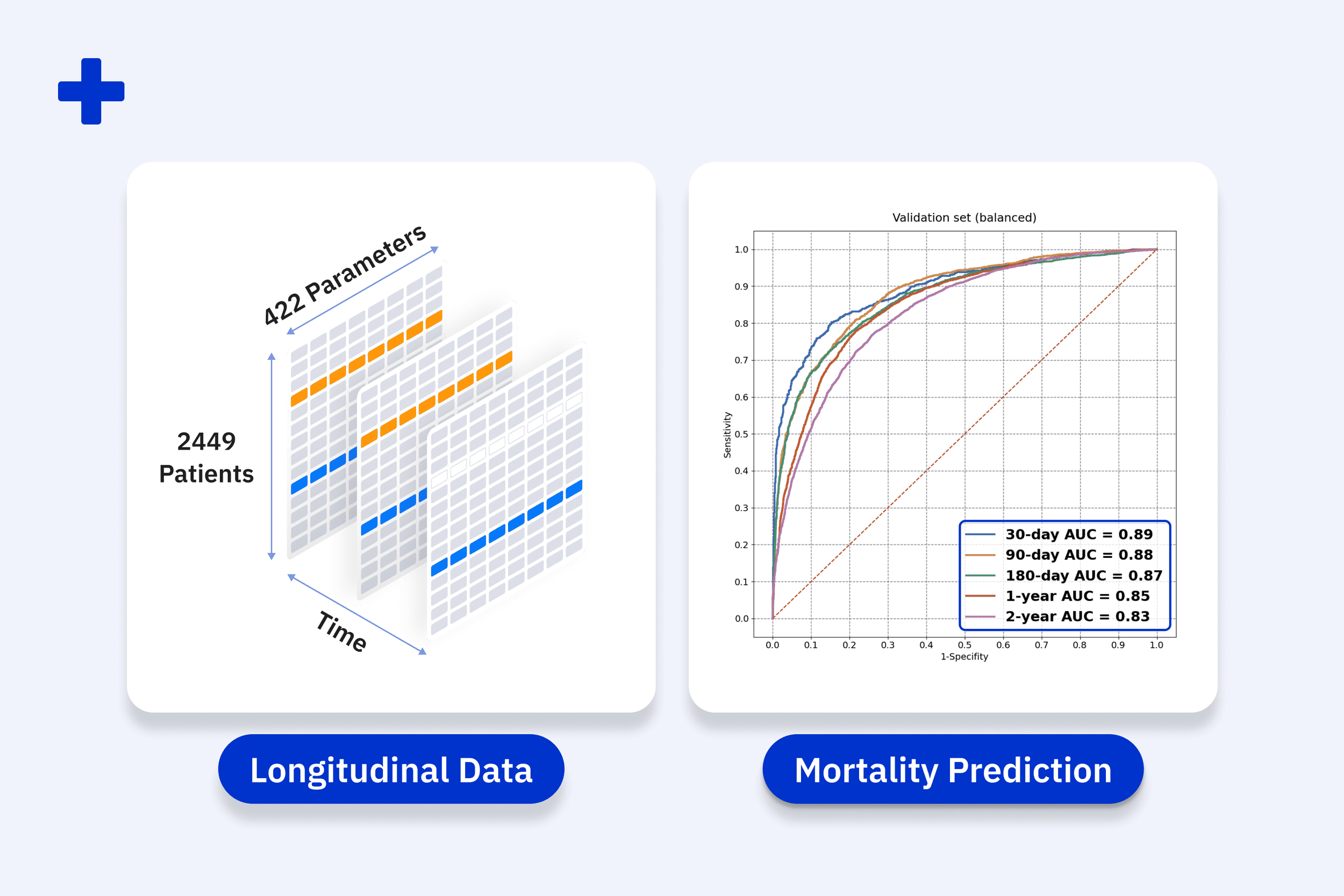PMcardio, our AI-based platform, revolutionizes cardiovascular disease management with advanced AI ECG analysis and diagnostic insights. Its continuous evolution, bolstered by a partnership with the Cardiovascular Center Aalst, Belgium, recently led to a breakthrough in heart failure mortality prediction, published in the ESC Heart Failure journal.
What is Heart Failure Prediction?
Heart failure prediction is a cornerstone in AI in cardiology, specifpically the management and treatment of cardiovascular diseases and, where timely and accurate assessment can significantly influence patient outcomes. PMcardio, our AI-driven platform, exemplifies the latest advancements in the predictive analysis of heart failure, leveraging sophisticated machine-learning techniques to analyze electrocardiograms (ECGs) for early diagnosis and management recommendations.
This innovative approach not only streamlines the triage process but also enriches diagnostic accuracy by incorporating a wide array of clinically relevant parameters through multivariate 3-dimensional time-series analysis.
Enter Pm-Aalst Heart Failure Mortality Prediction System
The significance of heart failure prediction lies in its ability to offer healthcare professionals a dynamic and comprehensive tool for assessing mortality risk. By comparing our system against traditional clinical risk scores, the PM-Aalst heart failure mortality prediction system has demonstrated superior performance across various heart failure phenotypes, including reduced, mildly reduced, and preserved ejection fraction.
This system has identified a novel network of clinical parameters, offering deeper insights into their influence on both short and long-term mortality. The introduction of a heatmap visualizing the most significant features predicting mortality underscores the nuanced understanding our model brings to the prognosis of heart failure.
Our collaborative research with the Cardiovascular Center Aalst in Belgium, published in the ESC Heart Failure journal, highlights the clinical impact of the PM-A
Why is Heart Failure prediction Important?
Heart failure (HF) is a global pandemic affecting at least 26 million people worldwide with an increase in occurrence. In 2012 it was responsible for an estimated health spending of around $31 billion, equivalent to more than 10% of the total health expenditure for cardiovascular diseases in the United States (US), expected to increase by 127% between 2012 and 2030.
Heart failure is a multimodal syndrome with a broad spectrum of causes, manifestations, and complications. Due to its complex nature, physicians treating heart failure patients often use a variety of clinical risk scores to aid in appropriate patient management.
These risk scores may provide important insights and answers to the following questions:
- What is the average life expectancy of this patient?
- Is it safe to discharge this patient?
- Does this patient need a more invasive treatment approach?
- Which parameters should be routinely observed in this patient?
Heart Failure Prediction Using Machine Learning for Mortality Prediction Throughout Standard of Care


What Is New in the Heart Failure Mortality Prediction System?
Our research focused on addressing the problems of state-of-the-art clinical risk scores currently applied in the management of heart failure patients. In particular, we have published a novel and reproducible HF mortality prediction system.The PM-Aalst HF models:
- Consider all clinically relevant patient parameters in time (multivariate 3-dimensional time-series)
- Showcased superior model performance compared to state-of-the-art risk scores (MAGGIC HF; Seatle HF; SEMMELWEIS-CRT score)
- Demonstrated robust performance across all heart failure phenotypes (HF with reduced, mildly reduced and preserved ejection fraction)
- Identified a new network of clinical parameters and their varying influence on short and long-term mortality
Heart Failure Prediction Dataset

Heat map of 40 most significant (p < 0.05) features predicting all-cause mortality for respective time limits with their weighted influence. Blue color relates to the lower probability of death, the red color indicates a higher death probability. Color intensity corresponds to the weighted influence on mortality.
What Is the Clinical Impact of the Heart Failure AI Prediction System in Alst?
Our novel findings are instrumental in showcasing the potential of machine learning models predicting outcomes in heart failure patients and aiding in the management of over 26 million affected patients worldwide. We have presented and evaluated the performance of a dynamic and comprehensive PM-Aalst system predicting all-cause short and long-term mortality in heart failure patients.
Additionally, it is also remarkable that our initial research has already kicked-off several follow-up studies! One of the (previously unknown) predictors identified by our model has recently been associated with adverse left ventricular remodeling and worse long-term outcomes in patients with heart failure and preserved ejection fraction.
This study marks an important milestone for us and our ongoing collaboration with the Cardiovascular Center Aalst in Belgium, congratulations to the co-authors and collaborators for their outstanding effort in this project.

Electronic health records Implementation possibilities of PM-Aalst HF system providing deep automatic insights about outcomes in heart failure patients.






